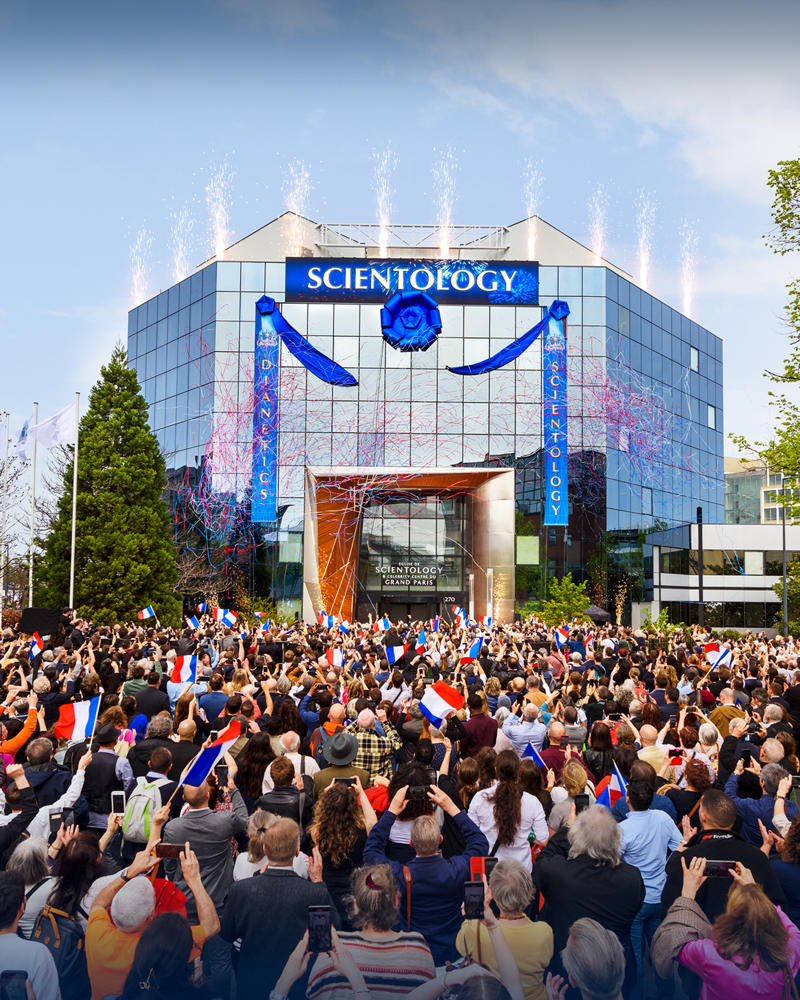Exactly How Scientology Impacts Personal Growth: A Thorough Evaluation
Exactly How Scientology Impacts Personal Growth: A Thorough Evaluation
Blog Article
Disproving Misconceptions: Separating Truth From Fiction Regarding Scientology

Origins of Scientology
The origins of Scientology trace back to the mid-20th century when L. Ron Hubbard, a science fiction writer, established the belief system in the 1950s. Hubbard's growth of Scientology stemmed from his earlier self-help system called Dianetics, which he introduced in the 1940s - Scientology. The shift from Dianetics to Scientology marked a change towards a more thorough religious viewpoint that included aspects of psychology, Eastern spiritual traditions, and Hubbard's very own concepts on human presence
Hubbard's expedition into the human mind and spirit caused the production of Scientology as a faith centered around the principle of spiritual knowledge and self-improvement through a procedure called auditing. Bookkeeping, a kind of spiritual therapy, intends to assist people get rid of mental and emotional barriers, known as engrams, that impede individual growth and understanding.
As Hubbard's trainings acquired appeal, Scientology developed into a worldwide activity with a significant following. In spite of objections and conflicts surrounding its techniques and beliefs, Scientology proceeds to attract followers seeking spiritual fulfillment and individual development.
Core Beliefs and Practices

One more fundamental facet of Scientology is the concept of the Thetan, the spiritual significance of a person that goes beyond the physique. Followers aim to comprehend and strengthen their connection to the Thetan via various methods such as study programs and filtration rituals.
The Church of Scientology additionally puts a strong emphasis on the relevance of personal responsibility and the idea that individuals have the power to form their very own destinies. Through adherence to moral guidelines and the pursuit of self-improvement, specialists of Scientology strive to attain greater levels of joy, success, and spiritual gratification.
Debates and Objections
Among this website Scientology's core beliefs and techniques lies a landscape marked by conflicts and criticisms that have actually stimulated extreme discussion and scrutiny. One of the significant objections leveled against Scientology is its secretive nature and the supposed exploitation of its members. Previous members have talked out concerning sensation pressured to donate big sums of money to the Church and facing harsh effects if they try to leave. Additionally, Scientology's status as a tax-exempt spiritual organization in some nations has been a factor of contention, with doubters suggesting that its methods are extra comparable to a company than a faith. Scientology.
An additional area of conflict surrounds the Church's therapy of critics and dissenters. Reports have actually arised of harassment, intimidation, and lawful dangers directed at those who speak up versus Scientology. This has actually raised problems concerning freedom of expression and the organization's dedication to openness and liability.
While Scientology has vehemently refuted many of these allegations, the objections and controversies surrounding the Church remain to fuel public apprehension and examination.
Scientology's Impact in Culture
With its visibility in various sectors of culture, Scientology's impact can be observed in both obvious and refined methods, shaping interactions and understandings. In the realm of education and learning, the Church of Scientology has encountered analysis for its initiatives to present its mentors right into colleges through programs like "Applied Scholastics." Critics argue that such efforts obscure the lines between church and state, possibly impacting the educational experiences of trainees. Furthermore, Scientology's influence reaches the world of psychological wellness, where its views on psychiatry and psychology have actually sparked arguments within the clinical neighborhood. The church's anti-psychiatry position has actually brought about Website skepticism and concerns pertaining to the efficacy of mental health therapies. In the realm of entertainment, Scientology's organization with top-level stars has actually brought interest to the faith, both positively and negatively. The involvement of well-known numbers in Scientology has, sometimes, offered to popularize the religion, while in others, it has actually drawn criticism and questioned about the church's practices and ideas.
Debunking Common Misconceptions
The Church of Scientology is legally acknowledged as a religious beliefs in numerous countries, including the United States, where it has tax-exempt standing. Like various other religions, Scientology gives spiritual assistance and techniques for its participants.
An additional mistaken belief is that Scientology requires its members to cut connections with their family members. In reality, the church highlights the relevance of family members connections and encourages participants to preserve healthy and balanced connections with their enjoyed ones.

Conclusion
Finally, it is necessary to different fact from fiction when going over Scientology. By examining its origins, core ideas, controversies, and influence in culture, we can debunk common mistaken beliefs surrounding this religion. It is vital to come close to the topic with a essential and unbiased attitude in order to recognize Scientology precisely and without bias.
Rooted in a foundation of spiritual knowledge and personal growth, Scientology's core ideas and practices encompass a varied range of principles and routines. Central to Scientology is the belief that humans are immortal spiritual beings who have forgotten their true nature. The participation of well-known figures in Scientology has, in some cases, offered to popularize the faith, while in others, it has actually drawn criticism and raised concerns concerning the church's methods and ideas.
The Church of Scientology is check out this site legally identified as a faith in many countries, including the United States, where it has tax-exempt status. Like other religious beliefs, Scientology provides spiritual support and methods for its participants.
Report this page